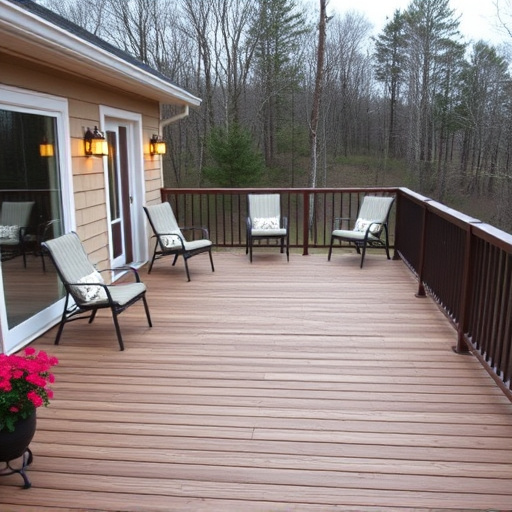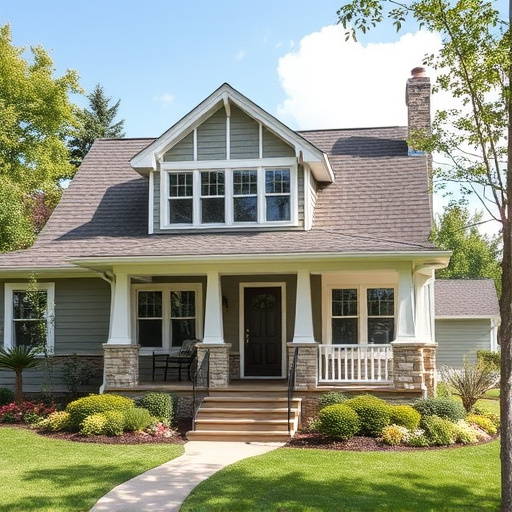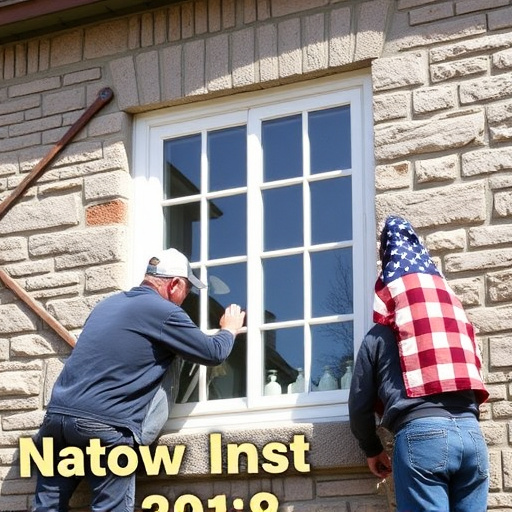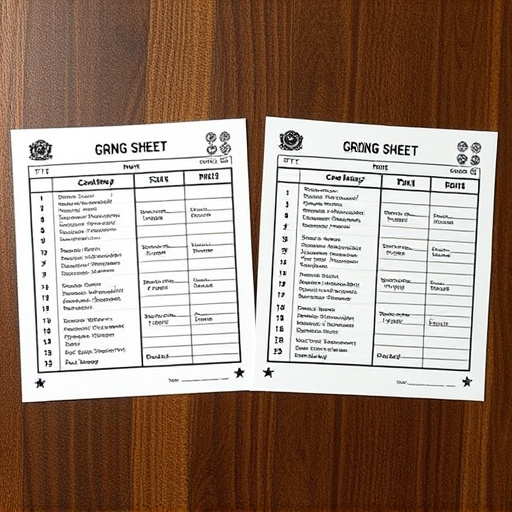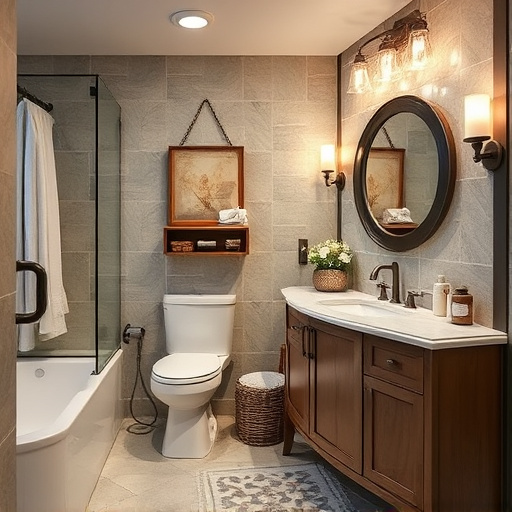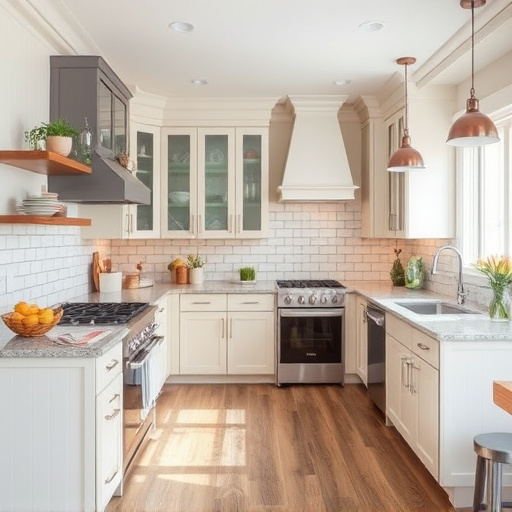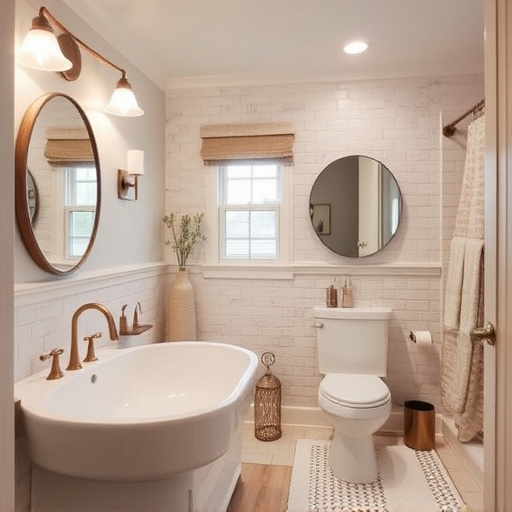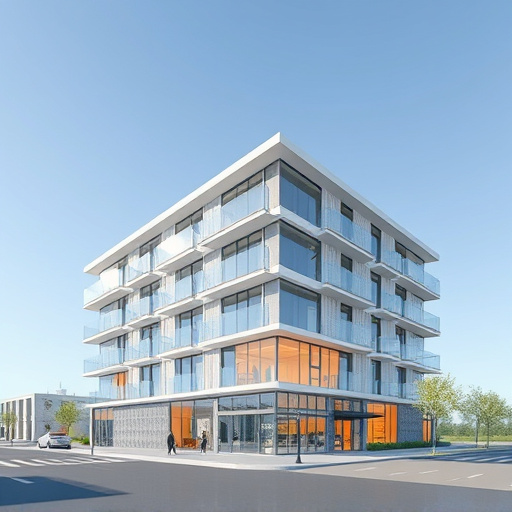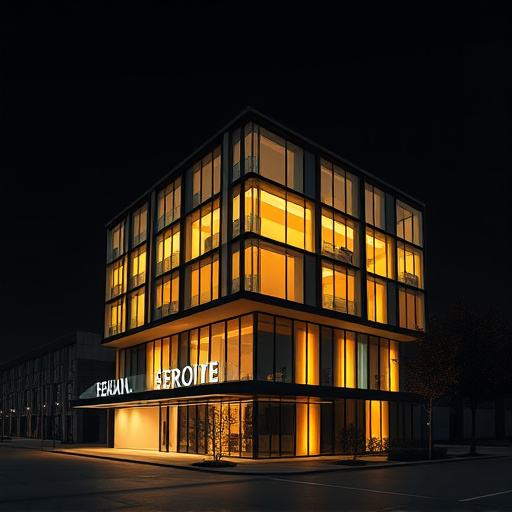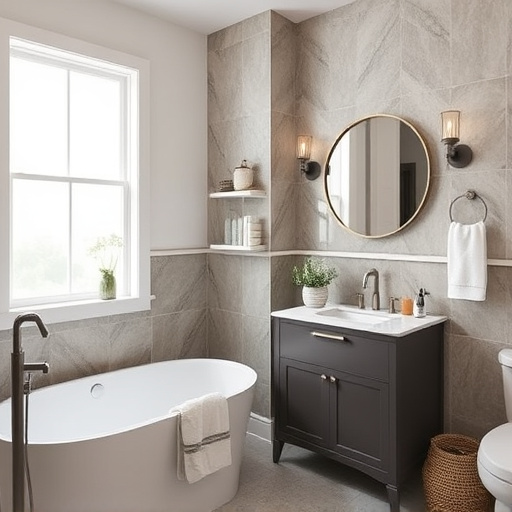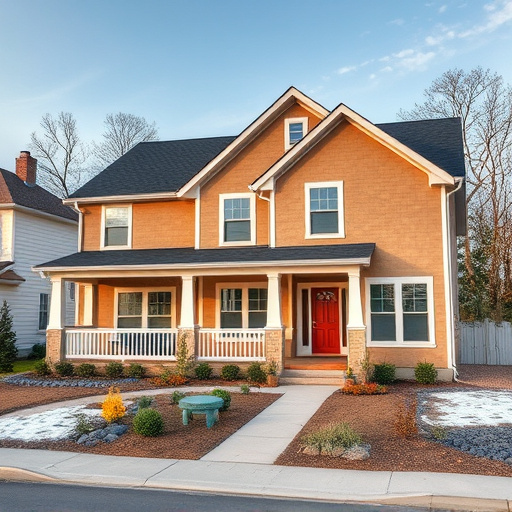Residential builders integrating sustainability choose eco-friendly materials like locally sourced and recycled options, energy-efficient technologies (e.g., insulation, LED lighting), and smart home systems for reduced energy use and enhanced homeowner well-being. Adopting green technologies future-proofs projects, reduces carbon footprints, and boosts property value in a growing sustainable construction market.
“As a residential builder, adopting sustainable construction practices not only aligns with environmental stewardship but also offers long-term benefits to homeowners. This comprehensive guide explores crucial aspects of eco-friendly material selection, energy efficiency strategies, and integration of green technologies. By implementing these recommendations, residential builders can create homes that are not only aesthetically pleasing but also resource-efficient, ensuring a brighter future for both builders and inhabitants alike.”
- Choosing Eco-Friendly Materials: A Residential Builder's Guide
- Energy Efficiency: Strategies for Sustainable Homes
- Integrating Green Technologies: Future-Proofing Your Build
Choosing Eco-Friendly Materials: A Residential Builder's Guide
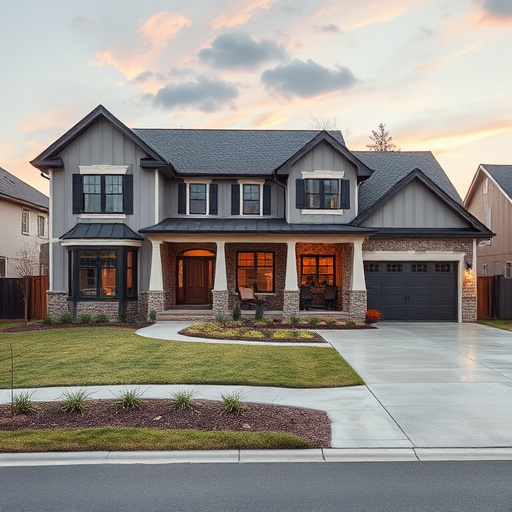
When it comes to sustainable construction, one of the key aspects a residential builder can focus on is selecting eco-friendly materials. This involves considering not just the environmental impact of the materials but also their durability and long-term benefits for homeowners. Opting for locally sourced products reduces carbon footprint by minimizing transportation emissions, while choosing recycled or biodegradable materials contributes to a greener planet.
For instance, builders can recommend using energy-efficient insulation, low-VOC (volatile organic compound) paints, and sustainable flooring options like bamboo or reclaimed wood. These choices not only align with environmental sustainability but also translate into healthier living spaces for residents. Additionally, incorporating smart home technologies that optimize lighting, temperature, and energy use further enhances the efficiency and functionality of residential spaces, catering to modern lifestyles while promoting ecological consciousness.
Energy Efficiency: Strategies for Sustainable Homes
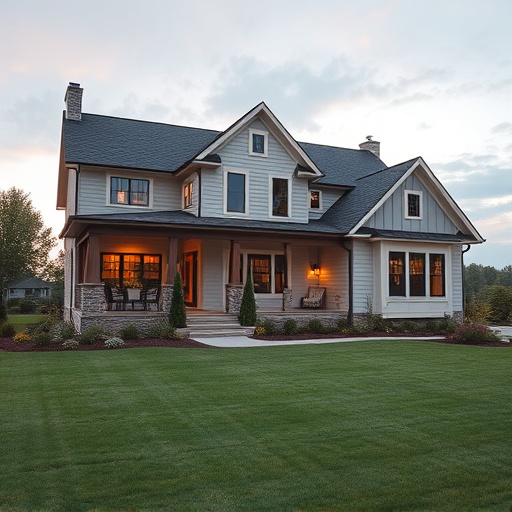
Energy efficiency is a cornerstone for residential builders aiming to create sustainable homes. Implementing green building practices doesn’t just benefit the environment; it also offers long-term savings for homeowners. Strategies include smart insulation, energy-efficient appliances, and LED lighting—all integral parts of making a home more eco-friendly.
For example, choosing the right windows can significantly reduce heat loss or gain, depending on the climate. Residential builders can also recommend advanced HVAC systems that adjust to indoor temperatures, using less energy. Additionally, home remodeling projects like floor replacements with insulation properties can contribute to better temperature regulation and overall energy conservation.
Integrating Green Technologies: Future-Proofing Your Build
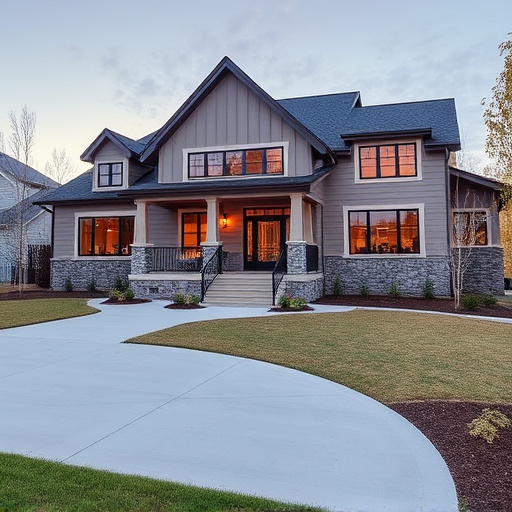
Integrating Green Technologies is a strategic move for any residential builder aiming to future-proof their builds and stay ahead in the industry. As the demand for sustainable construction continues to rise, adopting eco-friendly technologies becomes not just an option but a necessity. By incorporating smart home systems, renewable energy sources, and efficient insulation, builders can create homes that are not only environmentally friendly but also highly desirable to potential buyers. These innovations not only reduce a home’s carbon footprint but also offer long-term savings on energy costs, making them a sound investment for both builders and homeowners.
For residential renovations or customized home transformations, incorporating green technologies adds significant value. It ensures that the properties remain competitive in a rapidly changing market and appeals to environmentally conscious buyers. Moreover, these advancements contribute to the overall durability of the buildings, enhancing their resilience against climate change-related challenges. With the right strategies, builders can create homes that seamlessly blend modern convenience with sustainable practices, setting new standards for residential builder excellence.
Residential builders play a pivotal role in shaping sustainable construction practices. By adopting eco-friendly materials, implementing energy-efficient strategies, and integrating cutting-edge green technologies, builders can create homes that are not only environmentally sound but also future-proof. These recommendations not only contribute to preserving our planet but also enhance the value and livability of residences. As a residential builder, embracing these sustainable practices is not just a trend; it’s a responsible step towards a greener tomorrow.
